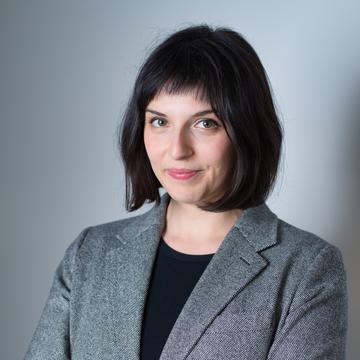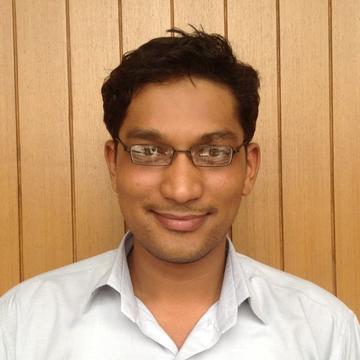The Department of Sociology and Leverhulme Centre for Demographic Science awarded three prestigious Marie Skłodowska-Curie Actions Fellowships
The Department of Sociology and Leverhulme Centre for Demographic Science (LCDS) have been awarded three prestigious Marie Skłodowska-Curie Actions (MSCA) Individual Fellowships by the European Commission.
The highly-competitive awards are given to experienced post-doctoral researchers to fund research that tackles global challenges, from climate change to health and migration.
Three talented researchers will join the department and LCDS as MSCA Fellows: Martina Baradel, Aashish Gupta and Fleur Meddens.
Martina Baradel
Martina Baradel’s research project addresses what happens when mafias are weakened, focusing on Japan and Italy. Considerable efforts have been invested in the conflict between mafias and the state yet little research has addressed what happens when policies and legislation are successful. Baradel’s project ‘When a Mafia Dies: the Criminogenic Effects of the Fight against Organised Crime’ will examine the power vacuum left behind by a declining mafia.
Martina Baradel has been awarded a Global Fellowship and will be supervised by Federico Varese, Professor of Criminology, Department of Sociology, with a secondment at Nagoya University, Japan.
I am very happy and proud to have been awarded a MSCA Global Fellowship, especially because of the nature of the project that I will be conducting starting later this year. This fellowship will indeed allow me to continue and expand my research on Japanese organised crime, as to include the Italian mafia and the future scenarios that might open as long-standing criminal groups lose the monopoly on the criminal market of their territory of origin. I am much looking forward to working at two of the most prestigious universities in the world with leading experts in the field, and I hope to embark on fruitful collaborations with scholars in Europe and Asia. I am particularly grateful to Professor Federico Varese, Professor Giorgio Colombo, and the team at Oxford for the support before, throughout, and after the application, and to Dr Sappho Xenakis for her guidance over the years.
Martina Baradel
Aashish Gupta
Aashish Gupta’s research aims to improve the measurement and understanding of population health in low and middle-income countries. Gupta’s project MU-MED (Measuring and Understanding Mortality, its Exposures, and its Determinants in developing countries) will focus on India and develop new approaches to measure mortality rates and life expectancies using survey and civil registration data, examine mortality differences by social class, and analyse the impact of environmental exposures.
Aashish Gupta has been awarded a European Fellowship and will join the Leverhulme Centre for Demographic Science and the Department of Sociology, supervised by Ridhi Kashyap, Associate Professor of Social Demography, Department of Sociology.
Reliable mortality estimates are arguably the most important social statistics. They are a cornerstone for social policy as well as scientific understanding of health. I cannot think of a better place to pursue research on measurements and determinants of mortality than the LCDS and the Department of Sociology at Oxford University. My hope is that other researchers and policymakers interested in population health will find this work helpful. I am very grateful to the incredible mentorship I have received from Professor Kashyap, and to the MSCA for supporting the project.
Aashish Gupta
Fleur Meddens
Fleur Meddens will conduct research into links between genetics, educational attainment, and social inequality. Social inequality is one of the world’s most persistent problems, and educational attainment one of its major drivers. Meddens’ project GENIO (Genetic contributions to Inequality of Opportunity) aims to develop a methodological framework to quantify and visualise the extent genes influence inequality of opportunity; see how genetic inequality of opportunity is moderated by sex and geographic location; and explore the extent to which genetic variations for educational attainment can predict outcomes for individuals.
Fleur Meddens has been awarded a European Fellowship and will join the Leverhulme Centre for Demographic Science, supervised by Melinda Mills, Director, and Nuffield Professor of Sociology, Department of Sociology.
I am beyond excited to be coming to Oxford as the MSCA Fellow at the LCDS in the Department of Sociology. The Department is ranked as the top sociology department in Europe, and its scholars are world leaders in the field. All the LCDS’s research programmes are bonded by a single core theme, social inequality. And it is inequality and how it’s bound up with genetic factors, that fascinates me. It’s not possible to study a subject as complex as inequality, which has so many moving parts, without taking a multidisciplinary approach. That is what the LCDS does and what I do too.
Fleur Meddens
Christiaan Monden, Head of Department and Professor of Sociology and Demography, said:
It is a delight and privilege to welcome three outstanding young scholars to our community. I am particularly pleased that they cover a wide range of topics and methods. This reflects both the contribution social sciences make to understanding the big questions of our time, as well as the strength and breadth of our department.
Previous recipients of the MSCA Fellowships in the Department of Sociology include Kamila Kolpashnikova and José Manuel Aburto. The three awarded fellowships are currently in Grant Preparation Phase.
For further information, please visit the Marie Skłodowska-Curie Actions' Website

Martina Baradel

Aashish Gupta

Fleur Meddens


